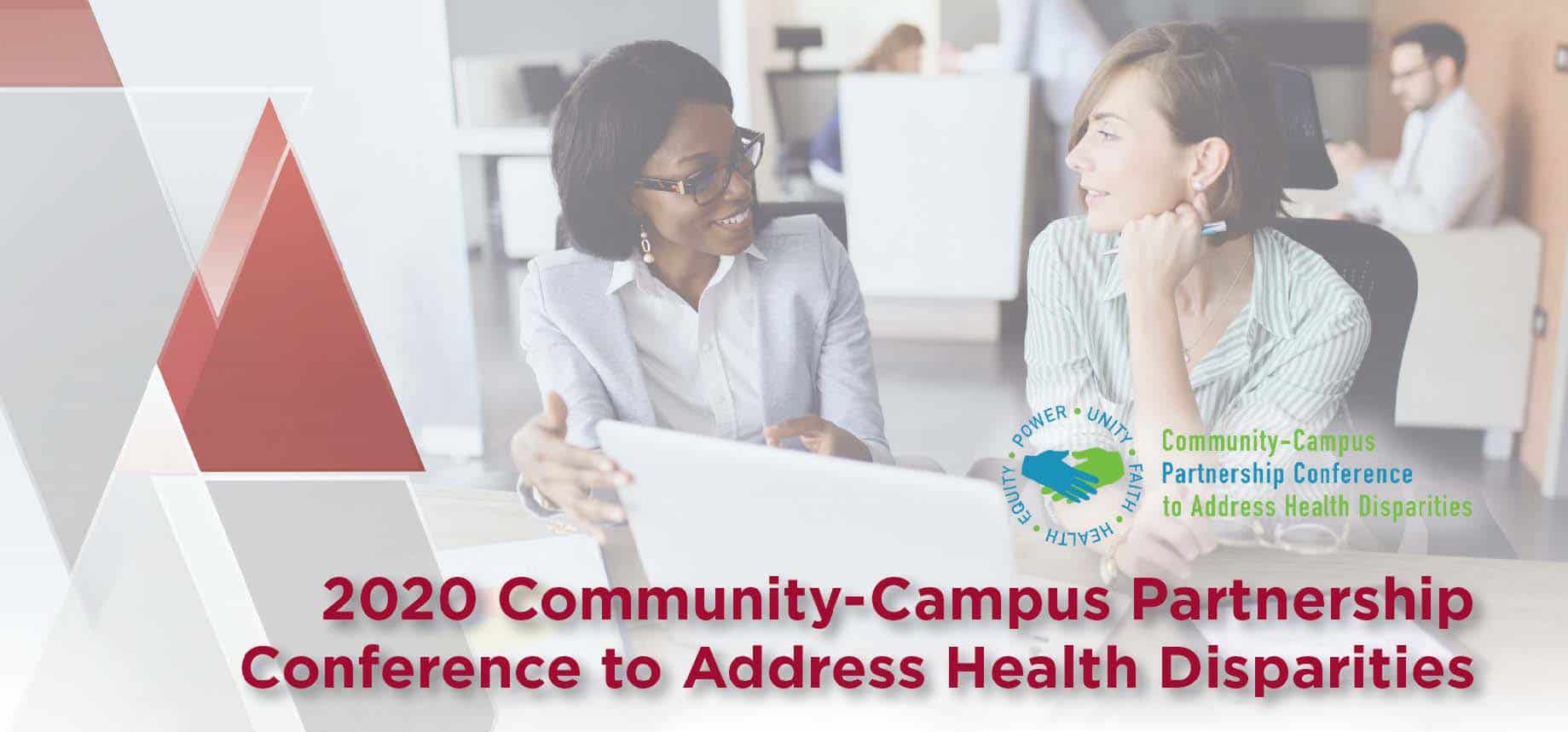Community Partners Gather to Address Health Disparities
| Building bridges and partnerships to eliminate rural health disparities was the focus Sept. 25 of the 2020 Community-Campus Partnership Conference.
The conference, presented by UAMS, brought together virtually over 200 community leaders, students, researchers, health care workers and stakeholders to discuss strategies that enhance the development and sustainability of community-campus partnerships in an effort to eliminate health disparities in Arkansas.
“This was an opportunity for us, as researchers, to have inclusive dialogue with patients, caregivers, providers, faith leaders, researchers and others to set research priorities that support the health and well-being of persons living in rural communities,” said Keneshia Bryant-Moore, Ph.D., APRN, assistant dean for Diversity, Equity and Inclusion in the UAMS College of Public Health and conference planning committee chairperson.
Attendees used the conference to discuss health disparities and identify ways community partners and researchers can work together to reduce them.
Keynote speaker Al Richmond, executive director for Community-Campus Partnerships for Health, discussed how health equity can be built through authentic partnerships.
“Health equity is a global issue. When we think about equity it’s about bringing necessary resources and providing adequate resources to protect all people,” said Richmond. “Health equity will be achieved when health disparities are eliminated.”
Richmond spoke about the impact of racism on equity and health. He posed the question, “What can we do?”
“To address racism and advance equity, it requires authentic partnerships,” said Richmond. “This type of partnership builds upon identified strengths and assets and works to address needs and increase capacity of all partners.”
Richmond said this requires trust, transparency, evidence of trustworthiness and partners.
“Authentic partnership are on a continuum, whether they engage in outreach, consulting, involving, collaborating or shared leadership,” said Redmond.
He suggested three strategies to address racism: 1) Name racism; 2) Ask how racism operates at the organization or partnership you are working on; and 3) Organize against racism through relationships, managing the public narrative, having a strategy, structure and action.
The morning session featured Courtney Clyatt, M.A., M.P.H., senior program officer for engagement at the Patient-Centered Outcomes Research Institute, who discussed patient-centered outcomes research and how it can be used to build partnerships.
The afternoon session featured Laverne Morrow Carter, Ph.D., founder, president and chief project director for Research, Evaluation and Social Solutions Inc. (REESI).
Carter talked about and provided examples of how communities can use partnerships to address rural health disparities.
Breakout sessions included topics on building relationships and partnerships, linking jail detainees to HIV pre-exposure prophylaxis, diabetes self-management education, and reducing tobacco smoke exposures in the Arkansas Delta. There were presentations from the most recent trainees of the UAMS Community Partners Educated as Arkansas Research Leaders (CPEARL) program, which is offered through the UAMS Translational Research Institute.
The conference was partially funded by the Arkansas Center for Health Disparities through a National Institute on Minority Health and Health Disparities grant award (5U54MD002329), the Patient-Centered Outcomes Research Institute (PCORI) Eugene Washington PCORI Engagement Award Initiative Notice (EAIN-2973) and the UAMS Translational Research Institute through a National Institutes of Health National Center for Advancing Translational Sciences Clinical and Translational Science Award (UL1 TR003107).
Collaborators for the conference included the Arkansas Community Health Workers Association, Research, Evaluation and Social Solutions, Inc. (REESI); the Arkansas FAITH Network; the UAMS Fay W. Boozman College of Public Health; and the UAMS Translational Research Institute.


